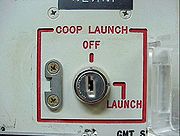
In October 2004, I visited the National Air and Space Museum in Washington DC. One of the exhibits there is a Minuteman III ballistic missile. It’s not a very impressive-looking object, and I hadn’t paid much attention to it on previous visits. But this time, I stopped in front of it for a while.
It was only about a month since the terrorist attack on a school in Russia, in which 186 children were murdered. And it struck me that had this missile ever flown, it would quite possibly have killed thousands of Russian children very much like those who were murdered by the terrorists.
I am not a pacifist or a nuclear disarmer, and I am not making a moral equivalence argument here; not in any way suggesting that American missileers are somehow similar to child-murdering terrorists. At the dawn of the age of strategic airpower, George Orwell summed up the situation: “If someone drops a bomb on your mother, go and drop two bombs on his mother.”
While the argument that the only defense against air attack was retaliation proved to be somewhat overstated during WWII, in which radar-directed fighters and AA guns did provide some meaningful defense against bombing, the argument was quite true throughout most of the Cold War era, given the existence of unstoppable ballistic missiles. I think that as a country we did the right thing in building and deploying Minuteman–and Atlas, and Polaris, and Trident, and the rest of them. But we must never forget that these things are the instruments of nightmares, and words like “deterrence” and “nuclear umbrella” and “massive retaliation” should never be allowed to hide the underlying realities.